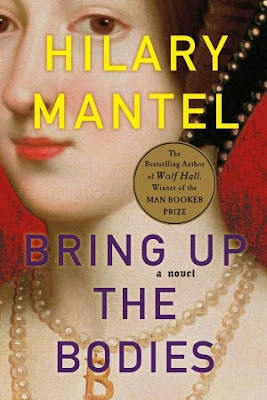
We all know that there is a deep connection between memory and the senses. Sights, scents, and sounds can trigger all sorts of complicated emotional responses, but for the main character in Alison Moore's Man Booker shortlisted novel, memory is hypersensitive, puzzling, and often devastating. Futh is a quiet, middle-aged man on Holiday in Germany after a recent separation from his wife, Angela. Their marriage has ended before Futh can accurately process exactly why, so he takes a short "vacation" to clear his head and try to figure out where things went wrong. Along the way, he stays in a small, locally-operated hotel referred to as Hellhaus. At the hotel, Futh finds the staff to be quite peculiar, especially Ester, who operates the hotel with her husband, Bernard. As Futh embarks upon his painful and tedious journey of memory and self-exploration, we are alternately transported back to Hellhaus, where Futh's presence has triggered a completely separate, but somehow connected resurgence of memories and abandoned thoughts.
As Futh scratches the surface of why his relationship with Angela failed, he is unpleasantly reminded of the other various failed relationships throughout his life, including that of his father, various neighbors, friends, relatives, and of course, his wife. But while Futh is picking at old wounds, he is continually reminded of the deepest and most painful memory - Futh's mother abandoned him and his father during Futh's childhood, and he has never fully recovered from the tragic abandonment, probably because he never understood why his mother left in the first place. Futh is left with certain scents and images to remind him of his long-gone mother, but most of all, he is entranced by a silver lighthouse that once contained a vial of his mother's perfume.
While Futh originally set out on a journey to achieve peace, quiet, and possibly clarity, he finds himself increasingly and mysteriously overwhelmed by the scent of oranges, cigarette smoke, violets, and camphor. All of these scents trigger various memories for both Futh and Ester, but neither are aware of how they intersect and why the emotional association is so strong. Alison Moore's novel is a melancholy portrayal of loneliness, abandonment, restlessness, and regret, but Futh and Ester's stories are quietly powerful, and their memories serve as reminders of the events in our past from which our senses will never let us escape.
This review was simultaneously published on
BookerMarks on 10/14/12
Overall Rating:
 For those of you who haven't seen the news yet, we have moved over to Typographical Era, where we are collaborating with a friend to bring you a new and improved resource for literary news, reviews, author interviews, and much more!
For those of you who haven't seen the news yet, we have moved over to Typographical Era, where we are collaborating with a friend to bring you a new and improved resource for literary news, reviews, author interviews, and much more!







